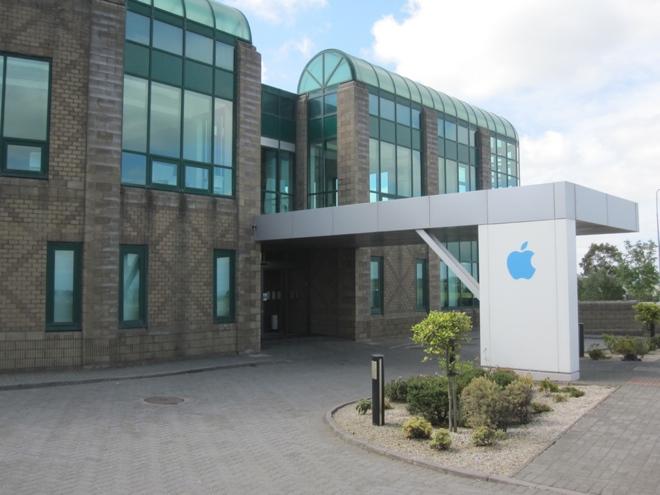The Irish parliament's finance committee has decided it won't bring in executives from Apple and Google for questioning over their use of the country for its low international tax rate.
Apple's headquarters in Cork, Ireland, via Flickr user Sigalakos.
A member of the Joint Committee on Finance attempted to get a motion passed this week that would have allowed the Subcommittee on Global Taxation to call in corporations for an inquiry, according to The Guardian. Specifically, Pearse Doherty was hoping to bring in companies such as Apple and Google, which have gained attention in recent years for their so-called tax shelters in Ireland.
Doherty's motion was denied, however, which means the subcommittee will not haul in executives from the companies for questioning. Apple Chief Executive Tim Cook did testify before a U.S. Senate subcommittee in May over his company's tax rates.
Of issue to some officials in Apple Operations International, an Ireland-based entity owned by Apple that has allowed Apple to pay a very low international tax rate. That's because in the law in Ireland states that only companies that are managed and controlled in the country are considered tax residents.
Apple Operations International is incorporated in Ireland, but is not managed and controlled there. In contrast, U.S. tax laws are based on where a company is incorporated — not where it is managed and controlled — leaving AOI to pay zero taxes.
In all, Apple has three offshore corporations that the company uses to legally reduce its effective tax rate to 15 percent. That's less than half of the U.S. effective tax rate of 35 percent.
The practice of using Ireland to shelter international money from taxation has become infamously known as a "Double Irish." The method earned its name because companies are required to set up two Irish companies to utilize the loophole — one company that owns the intellectual property rights, and another that licenses those rights and keeps its profits low.
Whatever profits are collected through the second company are taxed at a rate of 12.5 percent, or nearly a third of the 35 percent international tax rate imposed by the U.S. government.
Officials in Ireland began calling for an international crackdown on tax dodging by multinational corporations in May, after the government's laws came under scrutiny from officials around the world. But if the country does end up revising its tax laws, it appears it will do so without grilling executives from those companies.
 Katie Marsal
Katie Marsal







-m.jpg)






 Charles Martin
Charles Martin
 Malcolm Owen
Malcolm Owen
 William Gallagher
William Gallagher

 Christine McKee
Christine McKee
 Wesley Hilliard
Wesley Hilliard

 Andrew Orr
Andrew Orr








34 Comments
That 45 degree brace bar on the portico in the photograph looks... err... rather un-Apple like. Dodgy Irish builders, perhaps? /s
Why would the Irish want to shoot themselves in the head by questioning corporations for taking advantage of their low tax rates?
Of course it makes sense - if there are anamolies the companies are not responsible. The politicians themselves or the departments are responsible.
They have nothing to gain and everything to lose by doing so. At least they are smart enough to realize that.
Tired of this being called tax dodging. Tax deferral is more appropriate. Even a pro Apple site like AI cannot resist the idiocy.